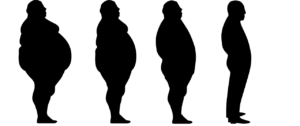
7 Ways to Prevent Bone Loss
As we age, our bones become more susceptible to loss and fractures. While some degree of bone loss is a natural part of the aging process, there are steps we can take to slow down and even prevent it. In this article, we’ll explore seven ways to prevent bone loss and keep our bones strong and healthy.
Table of Contents
- Introduction
- Why is bone health important?
- 7 Ways to Prevent Bone Loss
- Get Enough Calcium and Vitamin D
- Exercise Regularly
- Quit Smoking
- Limit Alcohol Consumption
- Get Enough Protein
- Avoid Excessive Soda Consumption
- Talk to Your Doctor About Medications
- Conclusion
- FAQs
Introduction
As we age, our bones naturally become weaker and more prone to fracture. This can lead to a variety of health problems, including osteoporosis and other bone disorders. However, there are steps we can take to prevent bone loss and maintain strong, healthy bones well into our golden years. In this article, we’ll explore seven simple ways to protect our bone health.
Why is bone health important?
Our bones play a crucial role in our overall health and well-being. They provide structure and support for our bodies, protect our vital organs, and store important minerals like calcium and phosphorus. As we age, our bones naturally become weaker and more prone to fracture, making bone health a vital concern for people of all ages.
7 Ways to Prevent Bone Loss
1. Get Enough Calcium and Vitamin D
Calcium and vitamin D are two essential nutrients for strong, healthy bones. Calcium helps to build and maintain bone mass, while vitamin D helps the body absorb calcium more effectively. Good sources of calcium include dairy products, leafy greens, and fortified cereals, while vitamin D can be found in fatty fish, egg yolks, and fortified milk and cereal products.
2. Exercise Regularly
Regular exercise is important for many aspects of our health, including our bones. Weight-bearing exercises like walking, jogging, and weight lifting can help to stimulate the production of new bone tissue, while also strengthening existing bones.
3. Quit Smoking
Smoking has been linked to a variety of health problems, including bone loss. Studies have shown that smoking can reduce bone density and increase the risk of fractures, making it important to quit smoking to protect your bone health.
4. Limit Alcohol Consumption
While moderate alcohol consumption has been shown to have some health benefits, excessive drinking can have a negative impact on bone health. Heavy drinking can interfere with the body’s ability to absorb calcium, leading to weakened bones and an increased risk of fractures.
5. Get Enough Protein
Protein is essential for many aspects of our health, including the maintenance of strong, healthy bones. Make sure to get enough protein in your diet, either through animal sources like meat and dairy, or through vegetarian sources like beans and nuts.
6. Avoid Excessive Soda Consumption
Soda and other sugary drinks have been linked to a variety of health problems, including bone loss. Some studies have suggested that the phosphoric acid found in soda can interfere with the body’s ability to absorb calcium, making it important to limit your consumption of these drinks.
7. Talk to Your Doctor About Medications
Certain medications, including some used to treat arthritis and cancer, can have a negative impact on bone health. If you are taking any medications, talk to your doctor about the potential risks and what steps you can take to protect your bone health.
Conclusion
Bone loss is a natural part of the aging process, but there are steps we
Eat a diet full of plenty of calcium-rich foods, such as yogurt, soybeans, tofu and salmon. Foods high in vitamin D include egg yolks, fatty fish, liver and fortified milk.





